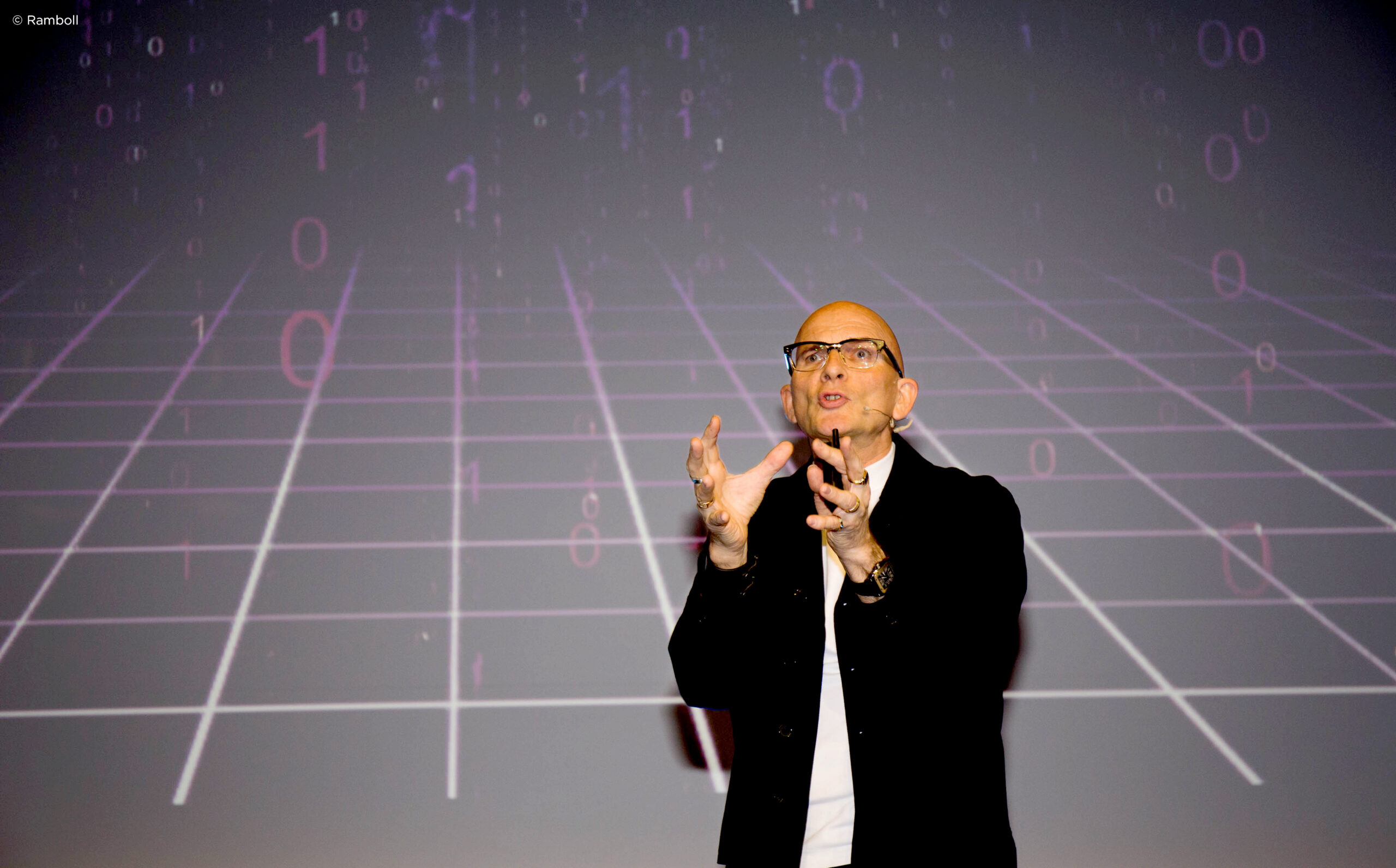The City, The Power and The Glory: Kjell A. Nordström

Swedish economist, writer and public speaker Kjell A. Nordström visited Helsinki and told us his thoughts about urbanization.
Kjell A. Nordström is a graduate and associate professor of the Stockholm School of Economics. He came to Finland to give a keynote at engineering, design and consultancy company Ramboll’s Näkökulma (“Point of View”) seminar. The event was part of the Helsinki Design Week programme.
Nordström drops examples from popular culture, software, mass consumption, new business ideas, marketing, pop stars, urbanization, city bees and capitalism. The same style is used in the book by Nordström and Per Schlingmann: Urban Express (2014). It is an adventure between two worlds.
“Urbanization changes societies more than modernism and industrialization ever did. In 2050, about 75% of the population will live in cities,” he says.
Nordström has studied the history of the most famous brands and personal brands. Why do some brands break through and even achieve a monopoly position?
“Urbanization enables people to specialize and various professions to be born. We need a certain size city to make, for example, city bees a business,” he says.
“The idea and the product must have distinctive personality.”

In the future, cities matter more than states and street wise is a must
Nordström keeps an eye on everything that happens in the real and virtual worlds. He studies historical information. He listens carefully, is present, exchanges thoughts and makes an effort to explain his point of view. This is the point exactly: meeting people, exchanging ideas, sharing information, building trust, looking at matters from another angle, by unlearning.
“Usually we don’t want to take our children to live in Lapland no matter how beautiful and pure the nature,” he says.
We miss meeting people face to face.
“Environments that please our senses have streets measured for people and elements of surprise: What kind of a cafe can I find around the corner? Who can I meet there? Can I find a group that thinks like me? Will there be cooperation?”
Nordström thinks people change slowly while technology changes rapidly. He admits that he likes new devices, such as smart phones.
“They are like sugar. Sweet things are within our reach, but an overdose can do us harm.”
Technology can also isolate people. At that point authenticity becomes hard currency.
“Anything that can become digital can be translated into machine language and copied. Everything is in the machine nowadays. Except that which is unique.”*
The world of data and bytes involves another risk, too. We may become misled.
“In the jungle of information only those survive who are able to navigate and evaluate relevance.”
Nordström’s message is not targeted at investors or those deciding about zoning but to everybody. Thinking is indispensable.
“We can join the mass without a critical thought or harness urbanization. In the future, cities matter more than states and street wise is a must”, Nordström forecasts.